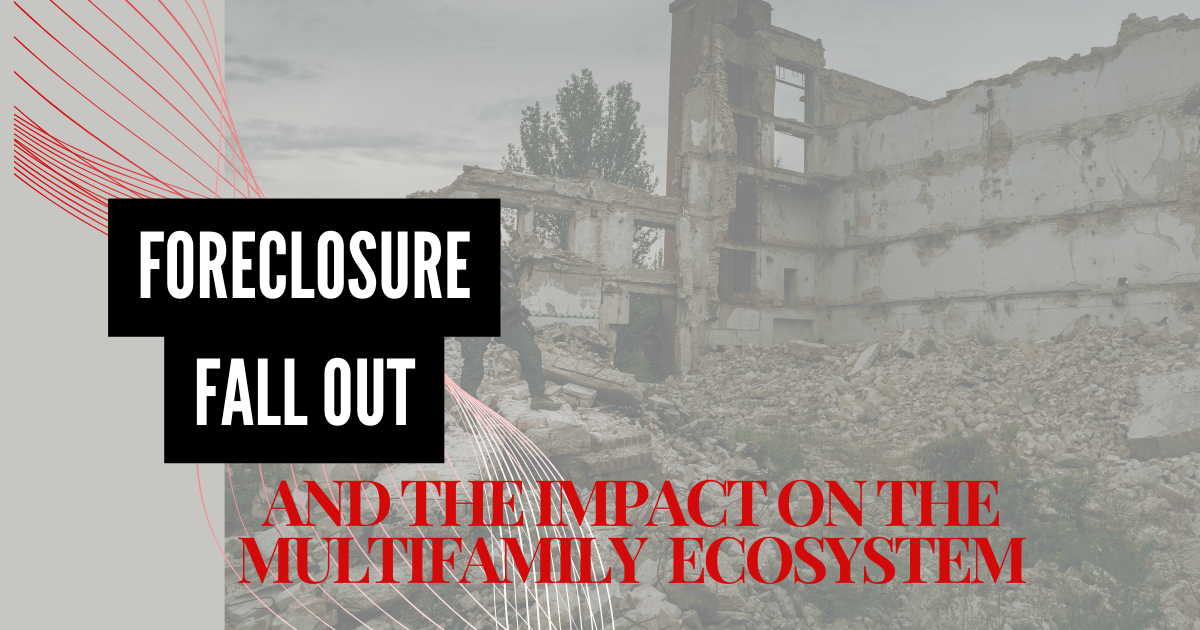
San Antonio/Austin market at the moment feels like Ground Zero for multifamily distress and oversupply.
In July 2024, four apartment communities in San Antonio, totaling 972 units, are facing foreclosure, leading to significant losses for hundreds of investors. There have been 6 other foreclosures in San Antonio alone this year.
Additionally, these properties, burdened with millions in accounts payable and in various states of physical distress, will suffer fallout extending beyond just equity losses.
When an apartment community faces foreclosure, it’s common to see over $2 million in unpaid invoices.
The process often goes from slow payments to no payments, with property management cycling through vendors until accounts are cut off. Suppliers and service partners extend credit with little verification of creditworthiness because upfront payment requirements would make it impossible to do business in this industry.
While big commercial suppliers might absorb some losses, Account Reps who ensured timely deliveries and round-the-clock support often won’t receive commissions if payments aren’t made within 90 to 180 days. Despite this, many Account Reps continue to assist Property Managers, knowing they likely won’t be compensated for their efforts.
Small businesses like contract painters, housekeepers, landscapers, roofers, and general contractors are severely affected by slow or unpaid client balances. These hardworking owners carry payroll and supply costs without the resources to chase payments, often showing leniency. Large unpaid balances quickly impact their operations and livelihoods.
You might start to imagine at this point the effect this would have on the site team.
The site team faces immense pressure from account cut-offs, inquiries from reps about unpaid bills, and complaints from residents about unresolved issues like leaks, broken gates, and non-functional amenities. This stressful environment often leads to staff turnover, leaving the remaining team shorthanded. In desperation, the maintenance team may start using parts from vacant units, while angry calls from vendors and residents go unanswered due to the overwhelming situation.
There is some measure of recourse for vendors in filing liens and working with the appointed Receiver but it’s still not victimless or without hardship. The site staff will find other positions, but what’s the impact on their mental health or enthusiasm for their career and industry? The Account Rep who was denied their commission will still service the property when the new owner comes aboard or answer the call for the Property Manager when they call from their new property.
So what can anyone do to help? So glad you asked….
- Pay your invoices even if it’s small payment weekly payments at times. Keep cash flowing for the engines of this industry.
- 3rd Party Management refuse to open new accounts when aged accounts are cut off. It’s terrible for the reputation of your organization and it does a disservice to the ownership groups when they think they can operate this way. They’ll always run out of runway.
- Don’t spend what you don’t have. When a property is in a cash crunch, communicate immediately with the site teams, and develop a plan to manage spending. Make smaller orders, change flooring (you can’t afford plank, go to sheet vinyl), and don’t spend money you don’t have.
I’ve had conversations all year with people in every role in every aspect of the multifamily industry. Over two decades in, I’m still in awe of just how dedicated and unshakeable the professionals of this industry are.
This year, I’ve observed cracks in the foundation though, and have fielded more and more distress calls from Regional Managers to GC both personally and professionally. It’s time our focus shifts to alleviating stress on those who this entire business replies on. The Boots on the Ground.

Authored by Stacey Hampton, Principal Consultant of Asset NOI with more than 25 years’ experience in real estate at the asset and property management company level.
Contact Stacey at SHampton@AssetNOI.com

